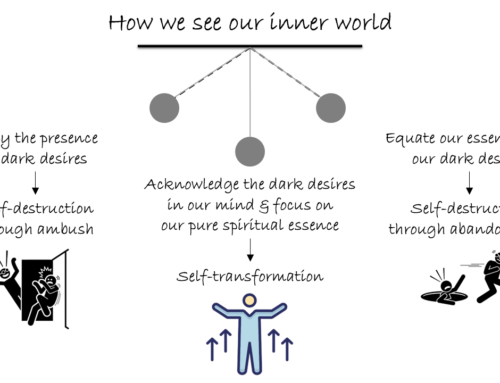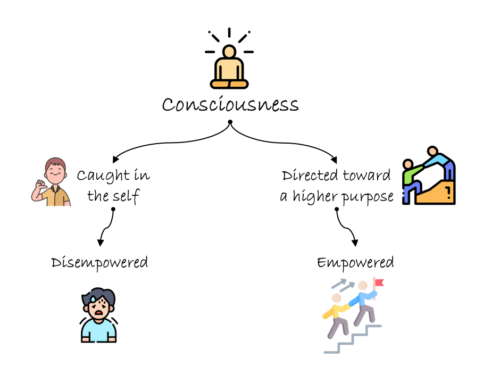Humility is one of the most treasured virtues in spiritual life, but it is often seen as weakness in material life. If we are humble, we fear that we will end up neglected or even trampled by the world. This understanding comes from a misperception of humility.
To let others walk all over us all the time is not humility; it is stupidity, it is the recipe to negativity, Humility means that we understand that the world doesn’t belong to us, that we all can share what the world has to offer, that we can create space for others so that they can survive and thrive. That doesn’t mean that we let them encroach on our space, suffocating us. The Bhagavad-gita explains that each of us are parts of the Whole (15.07).
Especially in an ultra-competitive world, where the space at the top is limited, how can we have space for each other? That is where humility needs to be coupled with spirituality so that we expand our definition of success. At the material level, because of the competition, sometimes sharing may not be possible. Yet from the spiritual perspective, each of us has a place and purpose in the divine plan. Each of us has a certain set of abilities, interests and resources by which we can make our contribution if we focus not so much on expectation of what we will get in the world, but rather on the contribution that we can make to the world. That readiness to shift from expectation to contribution is itself the essence of humility, and that will enable us to find our space and satisfaction therein.
One-sentence summary:
Humility is not putting ourselves down for others to step on us; it is making space for each other in a Whole that has place for everyone.
Think it over:
- What is a common misconception about humility?
- What does humility mean?
- What shift of focus can help us develop humility and find satisfaction?
To know more about this verse, please click on the image




very wonderful article prabhuji and very practical.
Happy to be of service.
Thank you so much Prji. This is very helpful.
Humility is to share space and not facilitating encroachment.
Well-summarized, thanks.